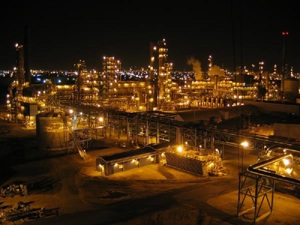World's largest CO2-to-methanol plant starts production
The world’s first commercial scale CO2-to-methanol plant has started production in Anyang, Henan Province, China. The cutting-edge facility is the first of its type in the world to produce methanol — a valuable fuel and chemical feedstock — at this scale from captured waste carbon dioxide and hydrogen gases.
The plant's production process is based on the Emissions-to-Liquids (ETL) technology developed by Carbon Recycling International (CRI) and first demonstrated in Iceland. The new facility can capture 160,000 tons of carbon dioxide emissions a year, which is equivalent to taking more than 60,000 cars off the road. The captured carbon dioxide is then reacted with the recovered hydrogen in CRI’s proprietary ETL reactor system with the capacity to produce 110,000 tons of methanol per year.
The successful start-up marks the end of a two-year project and months-long commissioning phase. Following sign-off by the CRI’s technical service team, the plant operations are now in the hands of Shunli, the project company (majority-owned by the Henan Shuncheng Group).
This flagship plant represents the achievement of an important milestone in the ongoing development of carbon capture and utilization (CCU) technology as well as the progression in industry towards a circular carbon economy.
At the heart of the process is CRI’s bespoke reactor that uses specialized catalysts to convert the carbon and hydrogen feed gases into low carbon-intensity methanol. The entire unit weighs around 84 tons or the weight of a fully-loaded Boeing 737. The reactor is mounted in a dedicated steel frame and connected to a specialized gas compressor and a distillation column that is just under 70-meters-tall.
The ETL process uses emissions that would have otherwise been released into the atmosphere, producing liquid methanol — from carbon dioxide that is recovered from existing lime production emissions and hydrogen that is recovered from coke-oven gas. Methanol production and use has grown rapidly in China in recent years and this new production method offers an alternative to the traditional coal-based methanol currently manufactured in China, reducing greenhouse gas emissions and improving air quality.
Björk Kristjánsdóttir, CEO of CRI, emphasizes the importance of the plant’s start-up, “We are proud to have successfully realized this important project and to bring our environmentally friendly, ETL technology into the global market. We take great pleasure in being able to offer our proven technical solution to produce a valuable product directly from waste streams. This can support large scale reduction of CO2 emissions and help facilitate the energy transition. With increased demand for such solutions, we look forward to continuing to make meaningful impact by deploying the technology with our current and future partners.”
CRI’s second project in China was announced last year and is already well on its way. It is expected to come online in the second half of 2023.







Comments